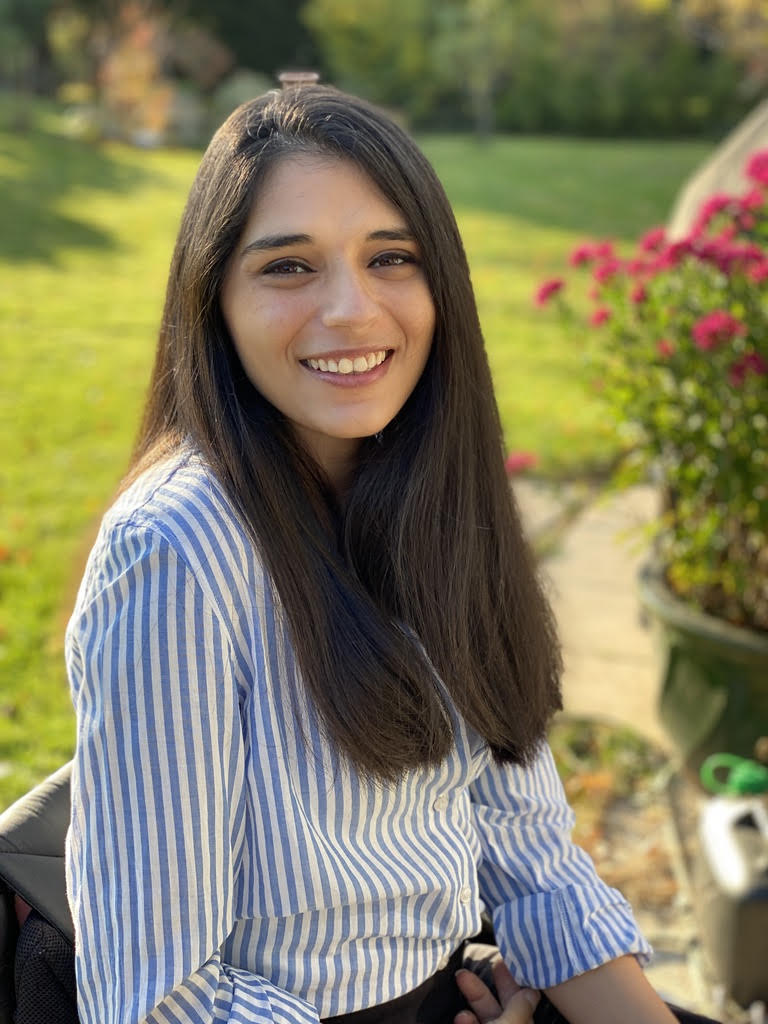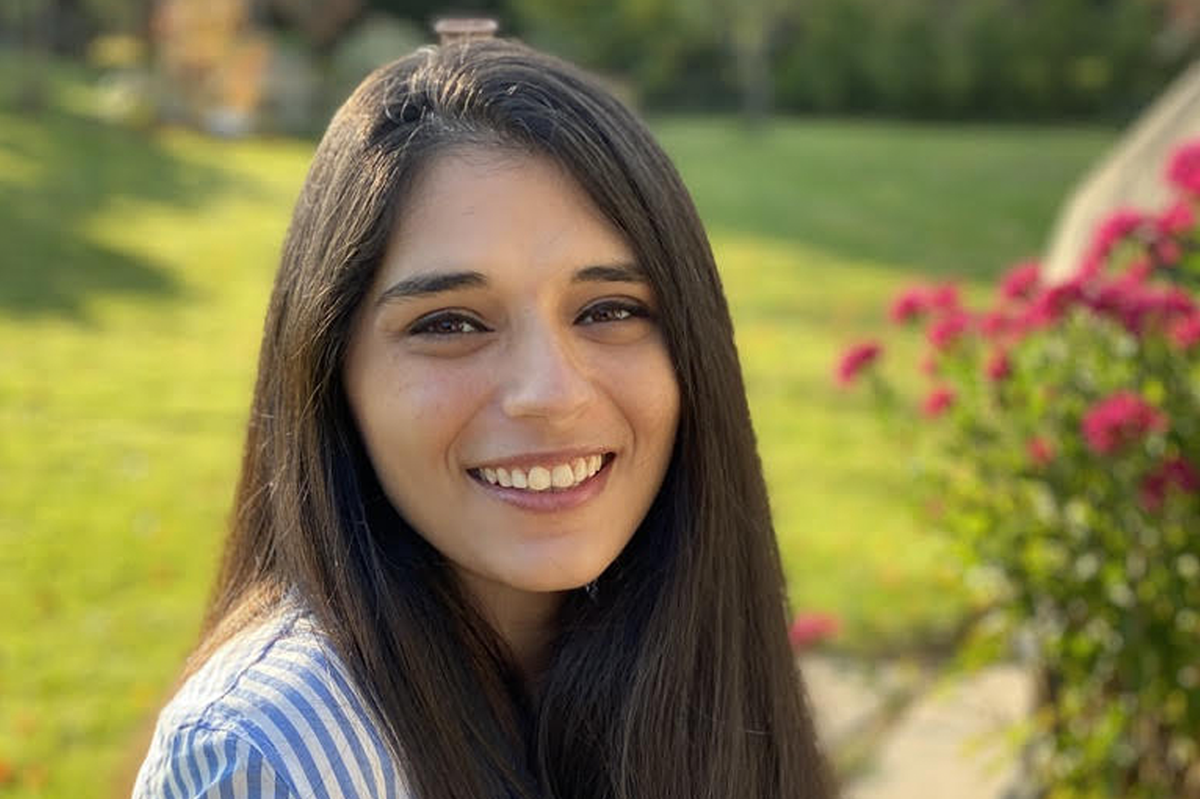Break the Chain of Inequity: Help Pallavi Find Meaningful Work and Build a More Equitable Future.
Pallavi spoke at length about her struggles while seeking meaningful employment. She stated that her disability and necessary periods away from work have caused her to be automatically disqualified by AI-powered hiring processes, despite her work experiences and impressive top academic performance. Pallavi believes meeting with potential employers face-to-face is essential, as it allows them to see her determination and motivation, qualities that cannot be captured on paper.
Furthermore, we discussed the prevalence of burnout post-COVID, where many individuals have had to take time off work for their well-being. Pallavi states that there is still a great fear of being penalised for taking a break, making it even more difficult for individuals to secure employment. Burnout is a significant problem in the workplace. It is like a candle that burns out slowly, but the longer it burns without intervention, the harder it becomes to rekindle the flame. Employees are responsible for prioritizing self-care, but it is equally important for companies and managers to take steps to prevent burnout in the first place. It includes creating a supportive work culture, providing mental health and wellness resources, and promoting work-life balance. Companies and their employees can thrive and achieve success by working together to address burnout.
Moving on to her experiences at a school in Switzerland, Pallavi recalls how she was forced to contact the school directly to apply, as the institution had written on its website, at the time, that individuals with disabilities should “reconsider applying”. The fact that Pallavi had to contact the school directly to apply, despite the institution’s clear message that individuals with disabilities should “reconsider applying,” is not only discriminatory but also goes against the principles of inclusivity and equal opportunity at the heart of any educational institution. This alone would have been a stressful and disheartening experience for Pallavi. Moreover, the fact that Pallavi was told during her school interview that her disability could be a barrier to her acceptance into the school is unacceptable.
“Disability should not be seen as a barrier to education or any other aspect of life. Students with disabilities should not have to fight for their right to an education.”
Once enrolled, the struggle to secure fundamental necessities such as a campus couch and facing difficulty navigating the school due to its lack of accessibility would only compound the already significant challenges that Pallavi was facing as a student with a disability. Access to basic amenities and facilities, such as a comfortable place to rest or study and accessible routes around the campus, should be a given. All students, including those with disabilities, should be able to fully participate in the academic, social, and cultural aspects of university life. Pallavi’s experiences highlight the importance of creating inclusive and accessible educational environments that support the needs of all students, including those with disabilities.
Pallavi later started studying in America but faced a great deal of discrimination from some of her teachers, which impacted her academic performance. In one instance, she initially received a failing grade, despite her hard work and previous A-graded assignments, due to a misunderstanding regarding submission deadlines. The issue was dismissed rudely after bringing this to the teacher’s attention. Additionally, when requesting necessary accommodations due to medical issues, she faced hostility from another teacher who suggested she drop the course. When Pallavi sought support from the Dean, she received no assistance and was advised to ignore the teacher. It’s important to note that Pallavi was battling life-threatening illnesses during this period, including a brain tumour and broken heart syndrome, with symptoms mimicking a heart attack. She was frequently in and out of the ER with her laptop! It’s hard to imagine what Pallavi was going through during that period of her life. On top of dealing with life-threatening illnesses, she was also subjected to discrimination by some of her teachers, which only added to her struggles.
“Can you imagine keeping up with assignments while frequently in and out of the emergency room? And yet, that’s precisely what Pallavi did. She never let her health issues stop her from pursuing her education, even if it meant bringing her laptop to the ER. It takes incredible strength and resilience to face such challenges and still push through, and Pallavi’s story is a testament to that.”
Despite these challenges, Pallavi did have some supportive teachers who helped her along the way. In some instances, a teacher consistently met with her outside of class to ensure she could keep up with the coursework while she had many stays in the hospital. This level of support and understanding greatly impacted Pallavi’s ability to succeed. It highlights the importance of having teachers who are willing to be flexible and accommodating to students who may have unique challenges. It also emphasises the responsibility of educational institutions and organisations to provide resources and support for students with disabilities or medical conditions. By doing so, they can ensure that all students have equal access to education and can reach their full potential.
“It is crucial for families and communities to stand up for individuals facing discrimination and support them in their pursuit of education and success. “
I want to emphasise that I have personally had the pleasure of meeting Pallavi’s parents, some of the kindest, most intelligent, and most inspiring people one could encounter. They consistently advocate for Pallavi and her rights and genuinely believe in her ability to succeed despite the barriers she faces. Their unwavering support and dedication to their daughter are truly admirable. However, it is crucial for families and communities to stand up for individuals facing discrimination and support them in their pursuit of education and success. I feel deep disgust for the discrimination that Pallavi faced regarding accommodations. For example, it is incredibly unfair that she was denied an accessible dorm room at college in America due to wealthy students being given priority. When Pallavi and her mother attempted to ask other students to switch rooms, they were met with refusal. It is unacceptable that students with disabilities continue to be marginalised and denied the accommodations they need to succeed.
Pallavi’s story is a powerful reminder that discrimination against individuals with disabilities is still very much present in our society. As Pallavi says, “education and workplaces should be a safe and inclusive environment for everyone. Only then can we ensure everyone has the opportunity to reach their full potential”. Pallavi’s experiences highlight the need for employers and educators to prioritise inclusivity and accessibility for all individuals. By sharing her story, Pallavi hopes to inspire others to act and create a more equitable and just world.
- It only takes one person to make a difference and create a ripple effect where supportive and inclusive environments become the norm. Never think you are too small to make a difference. By advocating for equity, offering a listening ear, and accommodating individual needs, we can positively impact others.
- To address biases in AI-powered recruitment tools against people with disabilities, companies can provide solutions such as regularly auditing and monitoring these tools and ensuring they are programmed to recognise and accommodate gaps in employment due to health issues or disabilities.
- To address discrimination, harassment, and retaliation in the workplace and academic institutions, companies can implement policies and procedures that provide a safe and inclusive environment, encourage reporting of incidents, establish accountability for leaders to promote equity and inclusion, and include metrics on these topics in performance evaluations. Additionally, companies can partner with disability advocacy organisations and educational institutions to provide resources and support for students with disabilities, such as accessible accommodations and training for all teachers.
- To help prevent burnout, the current work system needs to be re-evaluated and changed to address the underlying factors that contribute to it. Companies and leaders should take steps to create a healthier work environment that prioritises employee well-being and promotes work-life balance. This can include implementing flexible work arrangements, promoting open communication, and providing adequate resources and support for self-care. Simply offering occasional perks such as yoga classes or mental health days is not enough to combat burnout.
Pallavi: a skilled professional seeking a dream job at a multinational FMCG corporation.

About LEAD Network Europe
The LEAD Network Europe is a non-profit and volunteer-led organisation whose mission is to attract, retain, and advance women in the consumer products and retail sector in Europe through education, leadership, and business development. The LEAD Network is run by and for its members, women and men, and we value every individual for their unique perspective. With a primary focus on promoting gender equality the organisation strives for the advancement of women of every race, ethnicity, gender identity or expression, sexual orientation, age, educational background, national origin, religion, physical ability and lifestyle. Its vision is of a fair, diverse and vibrant industry where everyone can thrive. A diverse workforce where both men and women are enabled to contribute their full potential and lead their organisations to the next level of value creation. LEAD Network accounts for 18,000+ members – both women and men – from 81 countries.
For more information, please visit www.lead-eu.net


